Session
Leveraging Solutions: Smart Policies, Plans, and Actions
Putting Sustainability at the Heart of Landscape and Seascape Management – Key Roles Played by Subnational and Local Governments
The Satoyama Initiative— established to promote the sustainable management of landscapes and seascapes that include significant human production activities, with a view towards harnessing their cultural and natural heritage and resources— has proven to be a key factor in triggering transformational changes towards sustainability and resilience in many places around the world. While effectively functioning at all levels, global to local, it is at subnational levels and scales of action that transformational changes truly begin. Local policies and actions are required to overcome specific issues that communities and societies are facing as well as to achieve multiple Sustainable Development Goals (SDGs), including SDG 14 (‘life below water’) and 15 (‘life on land’).
In the context of the Satoyama Initiative, the term “socio-ecological production landscapes and seascapes” (SEPLS) has been coined to denote places where biodiversity and human production activities coexist in a harmonious mosaic of habitats and land- and sea-uses. When sustainably managed, SEPLS can meet a full range of local needs – water, biodiversity, food, health and others – while also contributing to national-level conservation and development priorities and global targets such as the SDGs. However, many SEPLS face serious threats today. Various activities have been implemented to meet these threats and contribute to triggering and mainstreaming positive changes.
This session will present ongoing work with the goals of sharing knowledge and fostering further action. Starting with an introduction of the Satoyama Initiative and IPSI, the international partnership created for its implementation, speakers will deliver presentations on activities promoting sustainable management of SEPLS. Representatives of IPSI-member subnational and local governments will present their activities, followed by insight on the importance of local activities from the perspectives of other types of member organisations. A subsequent panel discussion will focus on identifying the need for further development of SEPLS management practices and exploring ways to overcome existing challenges.
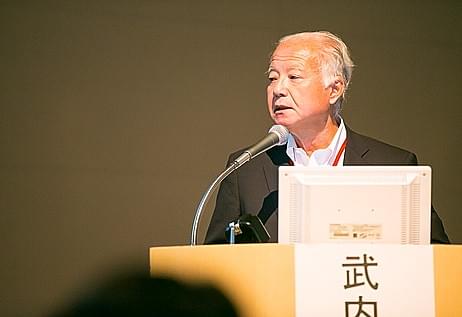
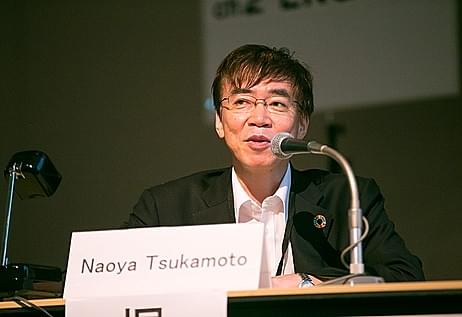
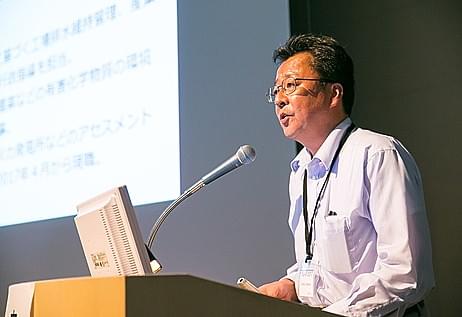
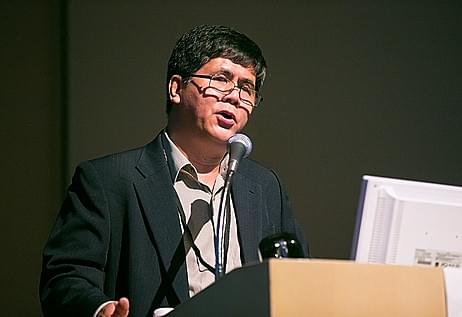
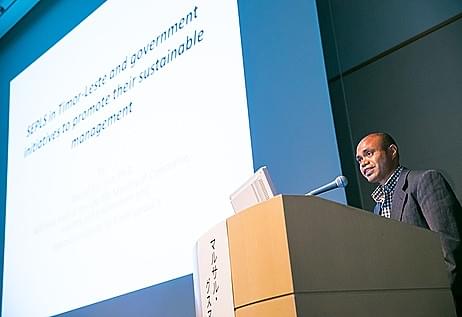
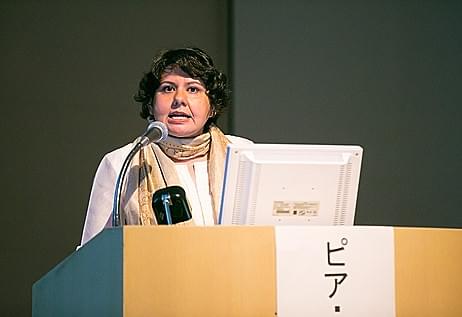
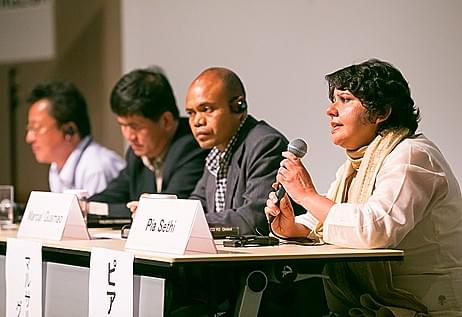
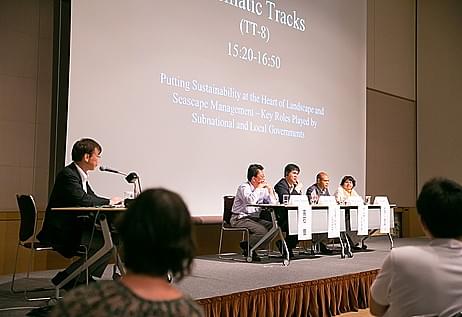
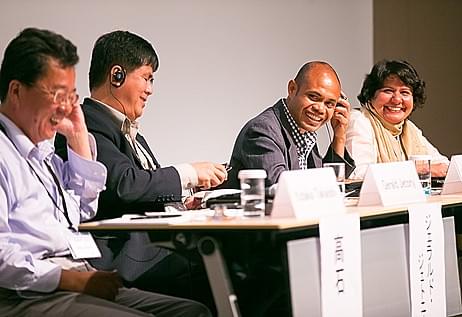
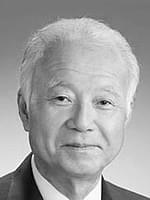
Opening Remarks
Kazuhiko Takeuchi
Chair of the Board of Directors, IGES / Director and Project Professor, IR3S, The University of Tokyo / Senior Visiting Professor, UNU-IAS
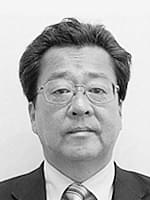
SSS
Yutaka Takaishi
Environmental Advisor, Hanshin-Kita District Administration Office of Hyogo Prefecture
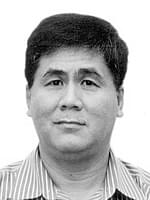
SSS
Gerald Jetony
Senior Geologist, Natural Resources Office of Sabah State, Malaysia
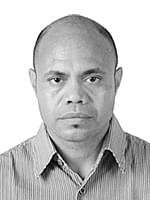
SSS
Marçal Gusmao
Lecturer and Vice-Director, Centre for Climate Change and Biodiversity, National University of East Timor (UNTL) / National Focal Point for the Nagoya Protocol of the United Nations Convention on Biological Diversity (UNCBD), Ministry of Commerce, Industry and Environment, Timor-Leste

SSS
Pia Sethi
Fellow and Area Convener, Centre for Biodiversity and Ecosystem Services, The Energy and Resources Institute (TERI)
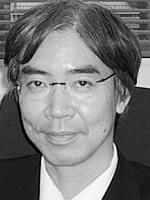
Moderator
Naoya Tsukamoto
Project Director, UNU-IAS

Moderator
Naoya Tsukamoto
Project Director, UNU-IAS
He has a Masters in Environmental Science from Johns Hopkins University, and a Bachelor of Physics from the University of Tokyo. Having entered the Ministry of the Environment of Japan in 1985, he has wide experience of pollution control, regional environment management, and global environment affairs. In From 2005-2008 he was head of the national delegation to the IPCC/AR4. Under the UNFCCC he served as Vice Chair and board member of the Adaptation Fund from 2006-2008, as well as a member of the Adaptation Committee from 2011-2013. From July 2014 to June 2016 Mr. Tsukamoto worked for the Institute for Global Environmental Strategies (IGES) as Secretary-General/Principal Researcher. Since July 2016 Mr. Tsukamoto serves as Project Director of three projects under the United Nations University Institute for the Advanced Study of Sustainability (UNU-IAS) and as Director of the IPSI Secretariat. His current research areas encompass climate change and Japan–China relations.

SSS
Pia Sethi
Fellow and Area Convener, Centre for Biodiversity and Ecosystem Services, The Energy and Resources Institute (TERI)
Dr. Pia Sethi is Fellow and Area Convener of the Centre for Biodiversity and Ecosystem Services at TERI. Dr. Sethi earned her Ph.D. in ecology from the University of Illinois in 2010 where she studied the consequences of defaunation on forest dynamics in the forests of the Eastern Himalaya. She has researched extensively the effects of human-induced degradation on the ecology of ecosystems and she is the team leader of several assignments on biodiversity, land use and forestry for clients, such as the World Bank, SIDA, JICA, GEF and MOEF&CC amongst others.
Dr Sethi has published extensively in international high impact journals including Conservation Biology, and co-authored a book on community forest management. She is an alumnus of the Conservation Leadership Program, USA, and the Chevening Programme for Young Environmental Managers, UK.

SSS
Marçal Gusmao
Lecturer and Vice-Director, Centre for Climate Change and Biodiversity, National University of East Timor (UNTL) / National Focal Point for the Nagoya Protocol of the United Nations Convention on Biological Diversity (UNCBD), Ministry of Commerce, Industry and Environment, Timor-Leste
Dr. Marçal Gusmao obtained his PhD in agronomy at the University of Western Australia (UWA), Australia in 2011, and Master in Soil Management and Conservation at the University of Adelaide, Australia in 2003 and Bachelor of Science in Agricultural Mechanization at the Universitas Hasanuddin, Indonesia in 1998. He started his career as a lecturer at the Faculty of Agriculture, National University of East Timor since 2000 to date. In 2012, he was appointed as National Focal Point for the Access to Genetic Resources and Sharing of Benefits Arising from Their Utilisation of the United Nations Conventions on Biological Diversity (UNCBD). He is now holding the position as Vice-director for the Centre for Climate Change and Biodiversity, UNTL. His research areas are crop adaptation to harsh environment including drought and flooding, agroforestry and soil and water conservation.

SSS
Gerald Jetony
Senior Geologist, Natural Resources Office of Sabah State, Malaysia
Mr Gerald Jetony chairs the Advisory Panel on Formulation of Sabah Biodiversity Con-servation Strategy and Action Plans, the Steering Committee of the EU Funded Pro-gramme “Tackling Climate Change Through Sustainable Forest Management and Community Development” in Sabah, and the Project Board of the UNDP-GEF Project on Biodiversity Conservation in Multiple-Use Forest Landscapes in Sabah from 2013 to 2018. In addition, Mr Jetony has managed several other multi-year projects related to sustainable development and biodiversity in Sabah and has been the Focal Point of Sabah State for international conventions such as the Convention on Biological Diversity (CBD), Ramsar and UNESCO’s Man and the Biosphere Programme (MAB).

SSS
Yutaka Takaishi
Environmental Advisor, Hanshin-Kita District Administration Office of Hyogo Prefecture
Mr Yutaka Takaishi is an Environmental Advisor with the Hanshin-Kita District Administration Office of Hyogo Prefecture. He joined the Hyogo Prefecture Civil Administration Office in 1987. As an environmental engineer, he provided administrative guidance on the management of industrial effluents and appropriate disposal of industrial waste based on the Water Pollution Prevention Law and the Waste Management Law. At the Hyogo Prefecture Environmental Research Centre, Mr Takaishi gained experience in the research of environmental burdens created by hazardous chemical substances and pollution mechanisms. Before taking on his new position in April 2017, Mr Takaishi served as the Director of the Hyogo Prefecture Permanent Atmospheric Observatory and as the Director of the Environmental Assessment Division of Hyogo Prefecture.
